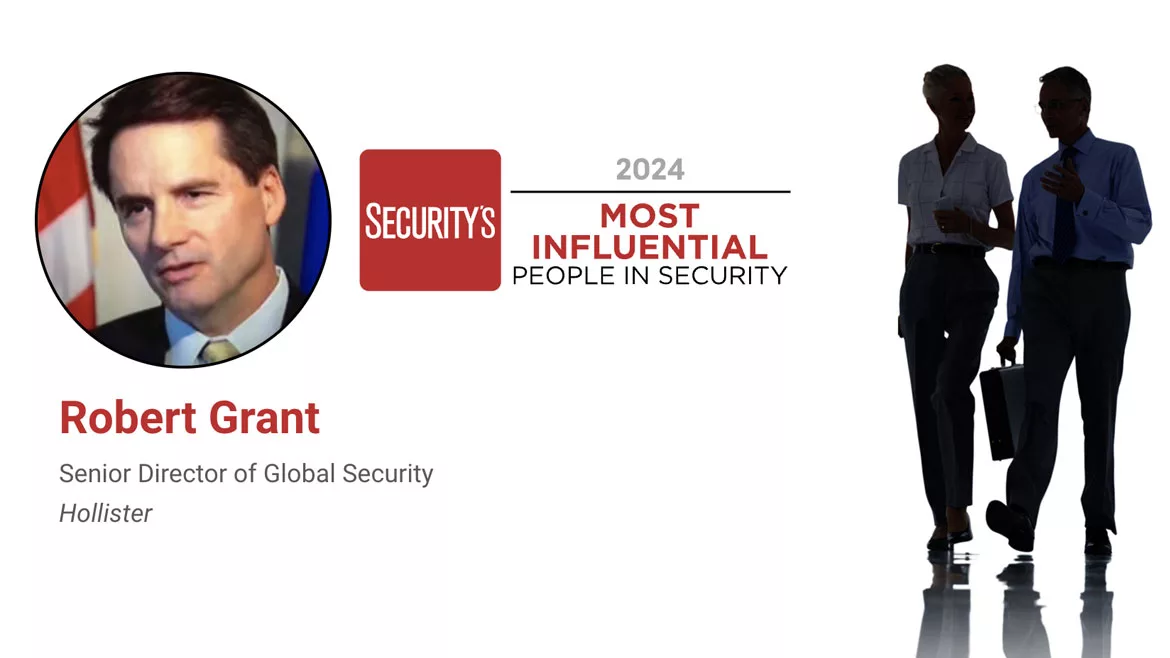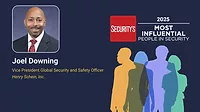Special Report
Robert Grant | Most Influential People in Security
Senior Director of Global Security | Hollister

Rawpixel / iStock / Getty Images Plus / via Getty Images
Bio image courtesy of Grant
Continue learning throughout your security career
Robert Grant’s career began with 25 years in the FBI. Grant traveled around the country — Tennessee, Washington, California, New York — working in various departments from financial crime to public corruption and terrorism.
His interest in the FBI began early, when the father of his childhood best friend allowed Grant to join them at a FBI picnic. “I was so impressed by the agents. That became my passion from that point forward, to get through college and compete and try to get into the FBI,” Grant says.
Interested in a change, Grant worked for the Walt Disney Company as the Vice President of Global Security. Not wanting to uproot his family from Chicago, Grant worked hard to split his time between work and home. The transition was rough, as the consistency found within the FBI was vastly different from that of a corporation.
Following his time with Walt Disney, Grant took on investigative work. Grant helped to investigate current and previous Catholic priests who may have been involved in inappropriate relationships with minors. “We had to do these investigations based on records, not based on interviews of priests or others. It was all based on what's inside the files in the Catholic Church. Now, if any organization documents more than the FBI, it’s the Catholic Church,” Grant says.
Currently, Grant works as the Senior Director of Global Security at Hollister, and not the denim company. Hollister is a medical devices organization that was just starting to build out their security presence when Grant signed on. “We'd never had global security. So this is probably one of the hardest jobs I've ever had, because they had to build from scratch, introducing concepts that they weren't familiar with, introducing technology they weren't familiar with,” Grant says, “When I came to the Hollister, we didn't have a presence overseas, and 70% of our employees are employed outside the United States. My first order of business was to hire somebody in Europe, which is where the vast majority of our employees are located.”
When the job became repetitive, when I was in Groundhog Day, I say that's usually when you know to start looking around for another hill to climb.
Grant also discovered the differences in working for an organization focused on security and safety, such as the FBI, and an organization with a different end goal, such as Disney. “Because security wasn’t generating revenue for the company, we were not considered the prime part of the organization. We were considered a necessary evil of an investment. And in the FBI, you are the prime investigators of the Department of Justice. So anything from cybersecurity, to political corruption, to financial corruption, to terrorism, to espionage, the FBI is the lead and primary agency. Making that transition was an adjustment,” Grant says.
“At Disney, we were precluded by HR from even using the term active shooter. That was kind of surprising to me, that it was HR’s attempt to preserve the brand, preserve the happiest place on earth and not even give the suggestion that we could be concerned about active shooters. And so they did not want us to discuss it with the employees. The phrase they made us use was imminent risk. Of course, nobody knew what imminent risk. The first question we had was what is imminent risk? We realized they were talking about active shooter,” Grant says.
Grant also spent time developing Hollister’s workplace violence prevention program. It was a different challenge from Disney, which had to account for the additional risks of thousands of daily visitors. “We want to make sure we manage these cases smartly, but also consistently. The risk could be at the highest levels of the corporation down to the mailroom administrator, we want to make sure when we process and manage these risks, we're doing it thoughtfully and consistently and on a scientific basis. So we use what's called Waiver 21,” Grant says.
Grant’s advice for security leaders is to know when it’s time to make a change. “There are people who aspire to go to the top. From the very end, they met their career all the way through. I know people like that. And some of them are very good, some are just overly ambitious, and not necessarily all that skilled. I enjoyed doing things and when the job became repetitive, when I was in Groundhog Day, I say that's usually when you know to start looking around for another hill to climb,” Grant says.
Looking for a reprint of this article?
From high-res PDFs to custom plaques, order your copy today!







